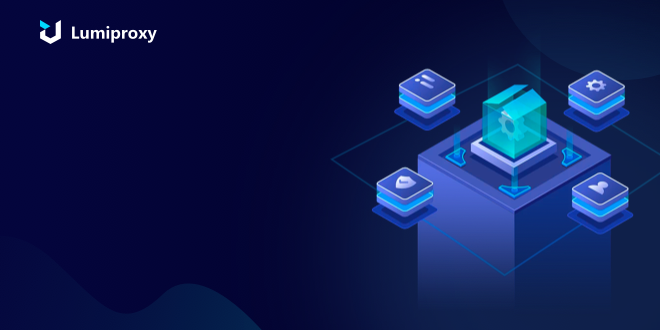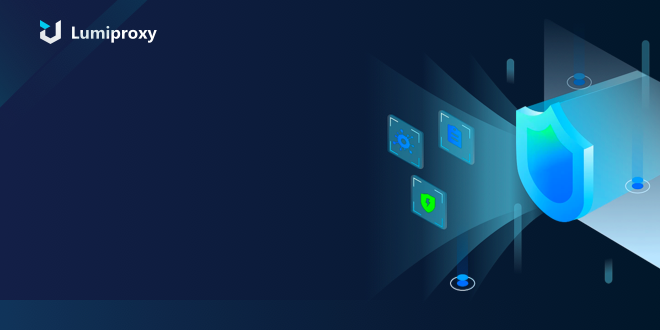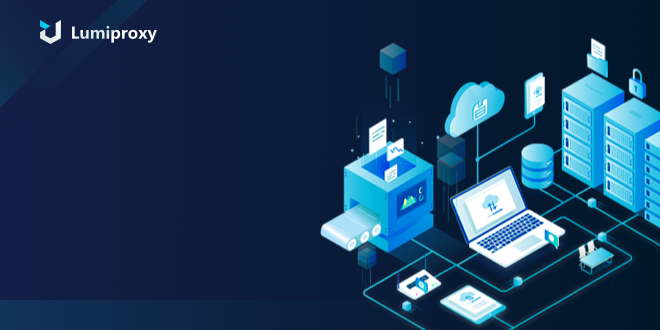With the advent of the digital era, network data has become increasingly rich and valuable. And Python, as a powerful and easy-to-follow programming language, has become the tool of choice for many beginners for web data collection (crawling). However, learning Python crawler for the first time is not an easy task and requires facing a series of challenges and technical difficulties. In this article, we will discuss the issues that beginner Python crawlers need to pay attention to, as well as introduce how to improve the effectiveness of the crawler through overseas residential proxies.

I. Understanding website rules and privacy policies
Before you start crawling a website's data, it is crucial to understand the site's rules and privacy policy. Many websites have anti-crawling mechanisms that will limit too frequent requests or take other means to stop the crawler. Follow the site's rules and set appropriate crawling intervals to avoid unnecessary burden on the target site.
II. Choose the appropriate crawler framework and library
Python provides numerous excellent crawler frameworks and libraries, such as Beautiful Soup, Scrapy and so on. Choose the right tool can significantly improve the efficiency and maintainability of the crawler. These tools provide functions such as parsing HTML, processing data, building requests, etc., making crawler development more convenient.
III. Dealing with anti-climbing mechanism
Many websites will adopt anti-climbing mechanisms, such as limiting the frequency of IP access, using CAPTCHA, and so on. To deal with these challenges, beginners can adopt some simple methods, such as setting appropriate request headers, using proxy IP, and so on. Overseas residential proxies are a useful option to provide different IP addresses for crawlers and reduce the risk of being blocked by target websites.
IV. Data Cleaning and Processing
The data obtained by the crawler often needs to be cleaned and processed for subsequent analysis and application. Beginners should learn to use regular expressions, string processing functions and other methods to transform the crawled data into structured information.
V. Respect the copyright of the website and data
When crawling website data, be sure to respect the copyright and ownership of the website. Avoid using the crawled data for commercial purposes or infringing on the rights of others. Before using the data, it is best to understand the relevant laws and regulations and the terms of use of the website.
VI. Learning about network security and privacy protection
Crawlers may involve network security and privacy issues. Beginners need to learn how to write secure code to avoid exposing sensitive information or putting the system at risk. In addition, crawling personal information and other privacy content is not allowed, and you need to follow the relevant laws and regulations.
VII. Practice and continuous learning
Most importantly, beginners should keep practicing and learning. Master more crawling skills and experience by doing more projects. At the same time, pay attention to the latest developments in the crawler field, understand new technologies and tools, and maintain their learning curve.
VIII. The importance of residential IP for crawlers
Crawlers play an important role in network data collection, however, it often faces various challenges, including anti-crawler mechanism of websites, limiting access frequency, etc. This is why crawlers need the assistance of residential IP:
1. Anti-Crawler Mechanisms: Many websites adopt anti-crawler mechanisms to limit too frequent requests. They may detect that the same IP address is sending a large number of requests in a row and recognize it as a crawler, and then take measures to block or restrict it. The use of residential IP can reduce the probability of being identified as a crawler, because these IP are more similar to the access behavior of ordinary users.
2. IP Blocking: If a crawler sends a large number of requests from a single IP address, the website may blacklist that IP address, making further access impossible. The use of residential IP can avoid the blocking of a single IP, because residential IP is used in a more decentralized way, and is not easy to be identified by the website as abnormal behavior.
3. Geographic location restriction: Some websites may restrict access based on the geographic location of the IP address, for example, restricting access to specific countries or regions. If you need to access overseas websites, using an overseas residential IP can simulate a real geographic location and gain freer access.
4. Anonymity and Privacy: Using a proxy IP can improve the anonymity of the crawler by not exposing the real IP address. This is very important in some scenarios where you need to protect privacy, especially when you need to collect data from some sensitive websites.
5. Stability and Reliability: Residential IP are usually more stable and reliable than data center or public proxy IP. Data center IP may be shared by multiple users and easily blocked, while residential IP are closer to real users and more stable.
Overall, crawlers need the assistance of residential IP in order to bypass anti-crawler mechanisms and reduce the risk of being blocked, while improving the anonymity and privacy protection of the crawler. This allows crawlers to collect data more efficiently while maintaining compliance and reliability.
























 हिंदी
हिंदी